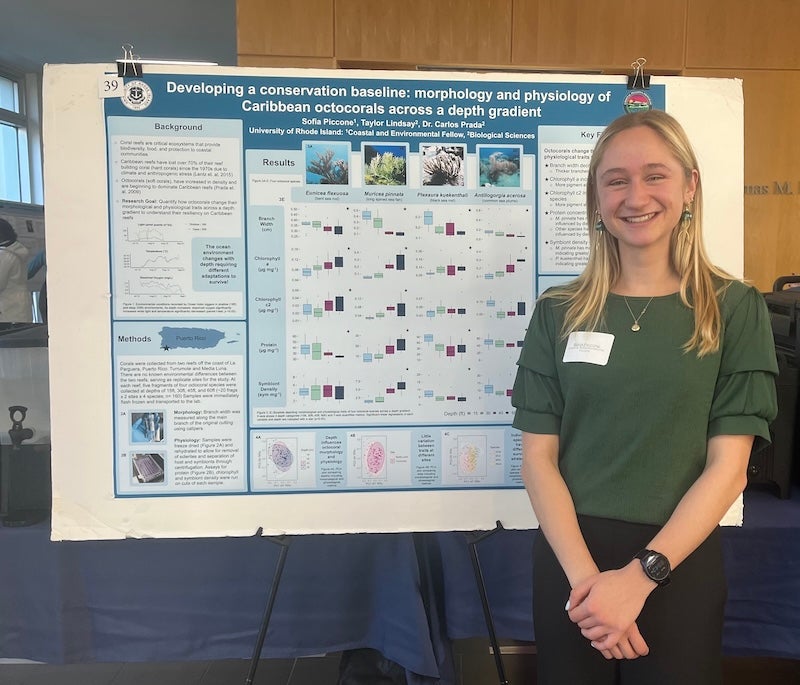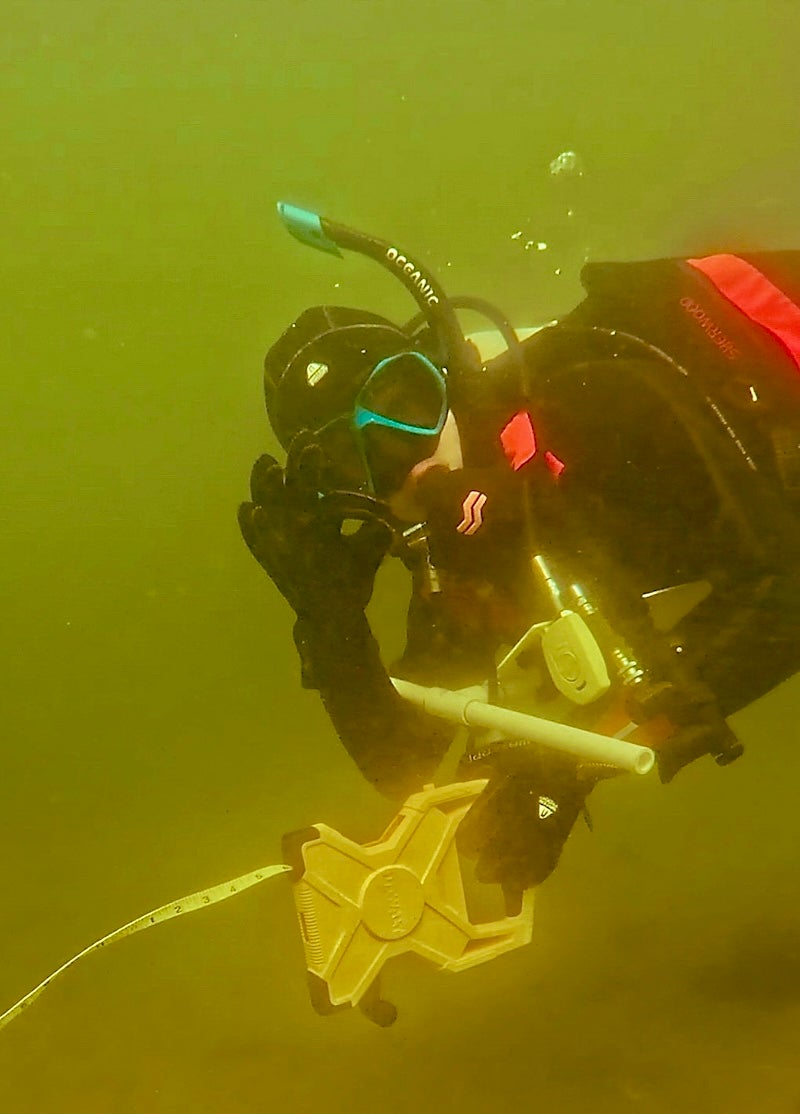Q. Why did you choose URI’s College of the Environment and Life Sciences?
A. I chose URI’s College of the Environment and Life Sciences as a marine biology major because of the many opportunities students have to be directly involved with the ocean. From classes that got us out on the RI shoreline to internship opportunities allowing for student driven research, I knew it would be the right place for me to grow as a marine scientist.
Tell us about the independent research project you worked on!
Through the CELS Coastal and Environmental Fellowship program, I had the opportunity to help out with a project focused on describing morphological and physiological traits of Caribbean octocorals across different ocean depths. Octocorals are proving to be resilient during destructive coral bleaching events happening in the Caribbean, so understanding the impact these understudied species have on the ecosystem is important for future conservation work. Our hope is to combine our research describing octocoral morphology and physiology with carbon and nitrogen isotope analysis to build a more complete picture of the role octocorals have in their reef ecosystem.
What have been some highlights of your time in the marine biology department?
One of my favorite experiences during my time as a marine biology student was working my way up to an American Academy of Underwater Sciences (AAUS) scientific scuba diving certification. I had the opportunity to take AFS 270 to obtain my open water certification and AFS 395-397 to learn the basics of underwater photography and videography while on scuba. These two classes allowed me to explore Narragansett Bay and immerse myself in the environment I was learning about in my classes. As part of the CELS Coastal and Environmental Fellowship I was able to obtain my AAUS scientific diving certification and have had the opportunity to dive on various research projects. Highlights include diving at Fort Wetherill State Park photographing Astrangia poculata Rhode Island state coral, and helping out with a Narragansett Bay kelp and biodiversity survey.
How do you balance your academic pursuits with being the captain of the URI running team?
Running has always been an important part of my life outside of academics as it has always provided me with a community of like-minded people who enjoy being outside and pushing each other to reach our own goals. I am grateful to have had the opportunity to compete collegiately as a member of the URI Cross Country and Track and Field team for the past four years. Having a leadership role in a sport that competes year round hasn’t made balancing academics and athletics easy but it has helped me learn more about myself and how to manage my time.
What advice would you give to incoming or current students?
My biggest piece of advice to new and current marine biology students is to not be afraid to put yourself outside your comfort zone to figure out what you enjoy most about marine biology. URI has so many opportunities to get involved with the ocean and now is the chance to figure out which one feels right for you. Take the challenging class, reach out to a research lab or join a club that gets you involved with the ocean.

What’s next for you after graduation?
Post undergrad I am staying at URI for one more year working towards a Masters in Biological Oceanography at the Graduate School of Oceanography. I have been an undergraduate research assistant in Kelton McMahon’s lab for the past three years and will continue my thesis research as a member of the lab. My thesis research involves looking at accretionary tissues in RI fish species through compound specific stable isotope analysis of amino acids. While working towards my masters I will also finish out my final year of athletic eligibility on the Women’s Cross Country and Track and Field team.

